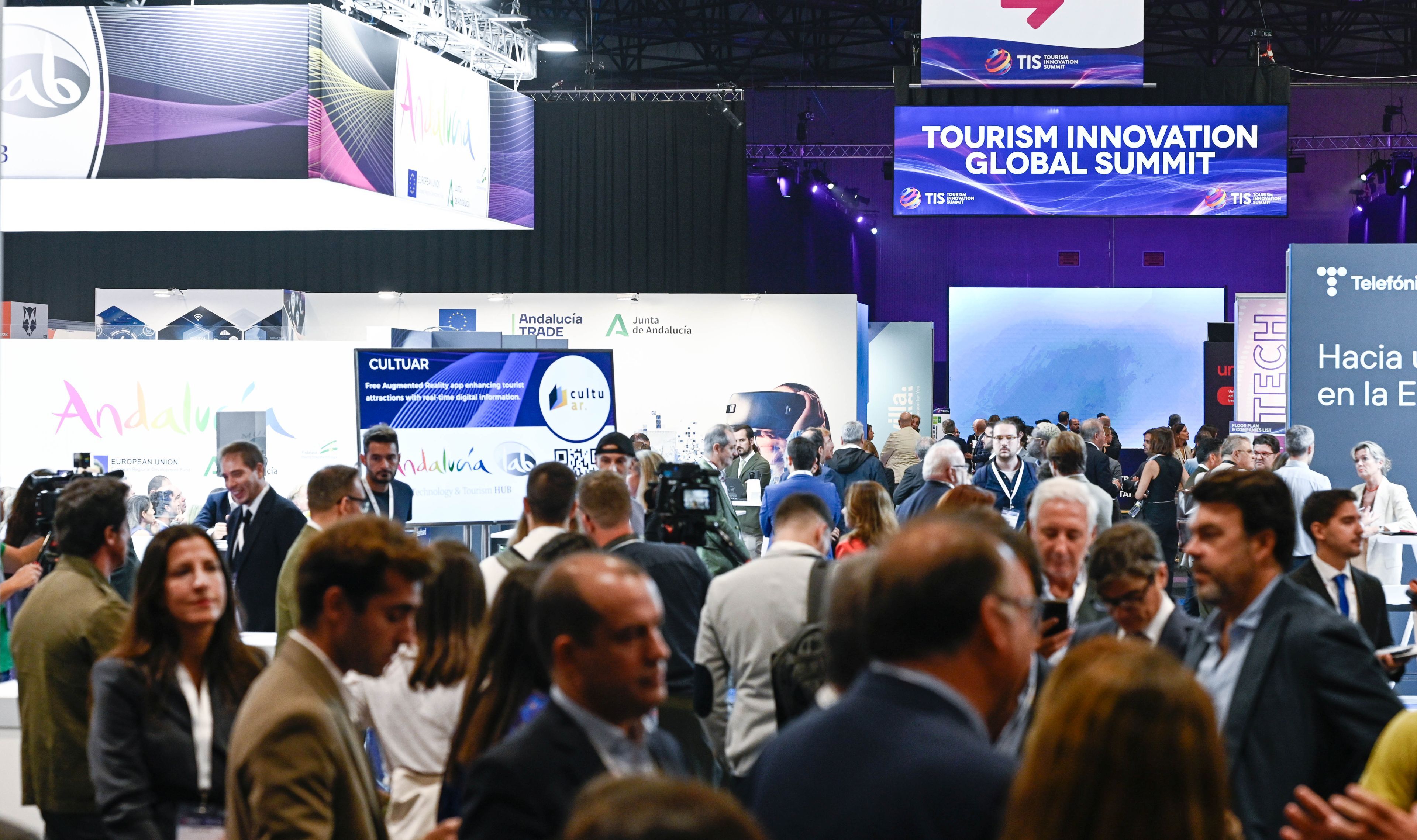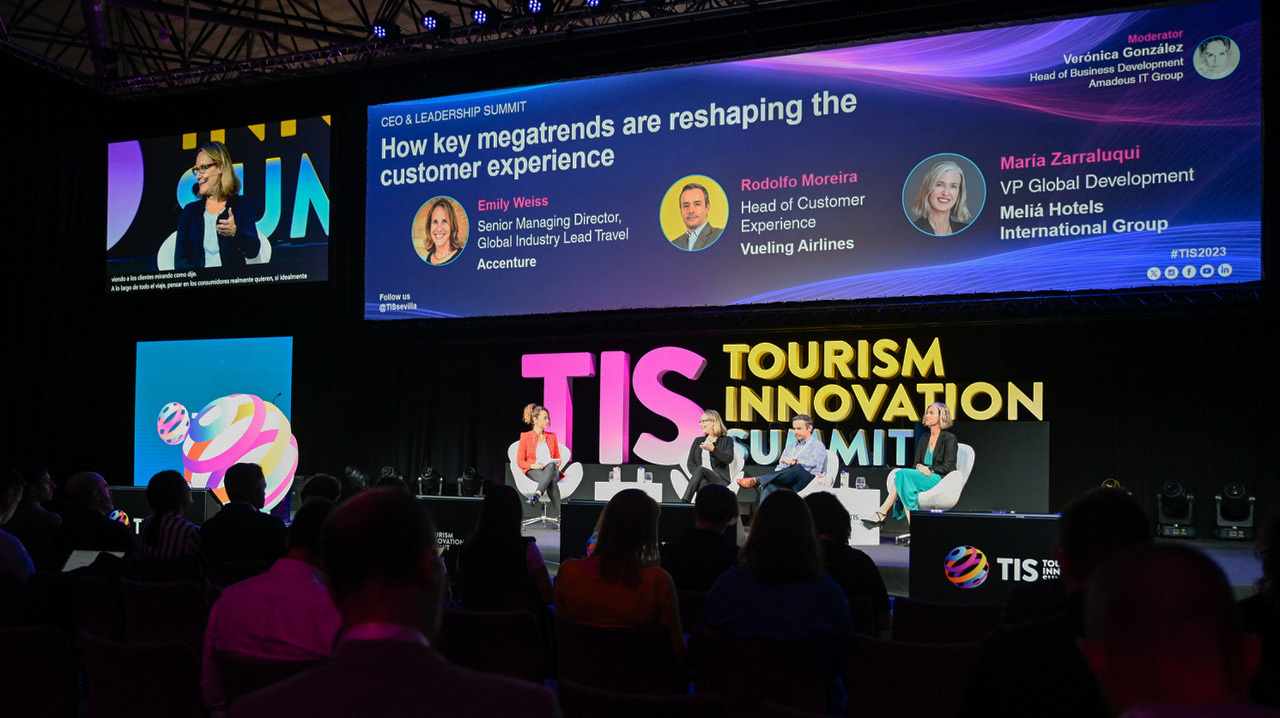The second day of TIS – Tourism Innovation Summit 2023 highlighted the most disruptive trends shaping a more sustainable and digital industry. Jenny Southan, CEO of Globetrender, presented six tourism megatrends that will develop in the coming years. The first is gamma gateways, or the opening of airports in more remote, undervalued or underserved destinations; the second is AI-based travel agencies, which, she said, “will serve mainstream travelers very well, although the profile of the luxury tourist will continue to demand personalized service.”
The third trend is clean air tourism, i.e., tourists who escape to destinations with better air quality, a growing motivation considering that 98% of Europeans breathe polluted air and that there are already 400,000 deaths per year in Europe due to air pollution. According to Southan, the fourth trend is the power of the alpha generation=. The travel journalist has argued that the Alpha generation, those born between 2011 and 2025, “should already be considered as travel decision makers and will be even more necessary in the future, considering that by 2025 there will be an estimated two billion Alpha generation children in the world”.
She also explained that new types of families, such as single-parent or same-parent families, “will be decisive for the hospitality sector, which will have to adapt to their needs and demands”. As a fifth trend, she presented self-sufficient hotels, which will offer not only gastronomic products produced on the property itself but also sustainable options such as infrastructures that produce neutral emissions. Finally, Southan highlighted the growing space tourism sector. Although still considered a mega luxury product, Southan explained that by 2030, “this market is expected to be valued at $8=.67 billion, with a growth rate of 37%”. The fact that there could be 8,000 billionaires in the world by 2030 may be a key factor.
Trends that will shape the travel industry
The global travel industry is challenged to cater to an increasingly autonomous and informed traveler. Surprising these profiles require more than ingenuity, and technology is coming to the aid of the travel industry. This was noted by experts such as Emily Weiss, Senior Managing Director, Global Industry Lead Travel at Accenture, who pointed out that “45% of consumers in the U.S. use TikTok and other social media apps to select their next trip, and capturing their attention on these platforms will be fundamental”. In this line, she added that “generative AI is still at an early stage, we do not know much about its application in the future, but it is certain that it will be used in customer service”.

According to Rodolfo Moreira, Head of Customer Experience at Vueling Airlines, “new technologies, automation and AI can help us provide better service to our customers. At Vueling, we are investing in biometrics and testing things like NFTs and Metaverse, but overall, we are just scratching the surface when it comes to these technologies.”
Sustainability is another key trend for the tourism sector, a factor that is increasingly part of the industry’s identity and companies’ commitment. In this regard, María Zarraluqui, VP Global Development at Meliá Hotels International Group, pointed out the opening last year of the first carbon-neutral hotel in Menorca, Villa Le Blanc. “Everything is designed in a sustainable way, for example, there is no need for air conditioning, due to the design of the hotel, which takes advantage of all the air currents and the Mediterranean climate, and we also offer km0 in all our services.”
Surfing the technology wave
Moreover,Florence Kaci, from Phocuswright, shared at TIS2023 emerging trends in travel technology. For Kaci, it will be critical to creating data management and analytics models that allow hotels to manage in “real-time” by feeding customer feedback and performance optimization, a reality that is already impacting the industry.
In addition, Kaci pointed out that new developments such as Web3 are proving their value to the sector, providing efficiencies and cost reductions in payments between parties, creating a common scenario for hotels, car rentals, airlines, etc. to converge and promote direct distribution models.
Finally, she highlighted the potential of generative artificial intelligence, which is transforming the travel cycle and offering hyper-personalization processes as we have never seen before. And the most futuristic note was linked to eVTOLs, air transport vehicles in cities, which will soon be a reality, but to what extent will they be adopted and what are the biggest challenges? she asked.








